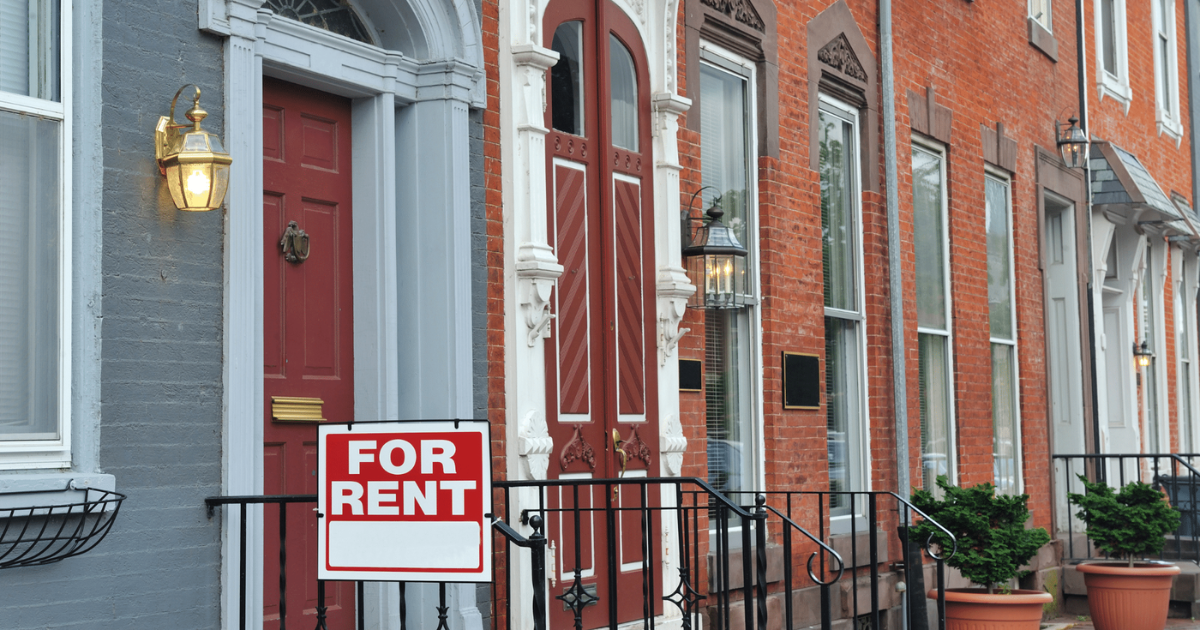Failure To Establish Undue Hardship For Zoning Variances
Not all properties are created equal, so to speak. Based upon the zoning code of the local jurisdiction, there are limitations as to how the property...
5 min read
Alan Nochumson : Oct 20, 2015 10:00:00 AM

For years, courts across the country have been dealing with what constitutes a legal marriage and, as such, who can be legally married. In essence, these cases have focused on how or whether the word “marriage” is or should be defined.
Last month, the Commonwealth Court in Schwartz v. Philadelphia Zoning Board of Adjustment, 2015 Pa. Commw. LEXIS 413 (September 24, 2015), denied a constitutional challenge to the application of the word “family” as defined in the Philadelphia Zoning Code.
In Schwartz, two separate landlords who owned properties near the Drexel University campus were cited for violating the Philadelphia Zoning Code by leasing their properties to a group of unrelated college students in single-family and two-family dwellings.
Under Section 14-102(49) of the Philadelphia Zoning Code in existence at the time, a “family” is defined as “a person living independently or a group of persons living as a single household unit using housekeeping facilities in common, but not to include more than three persons unrelated by blood, marriage or adoption.” The definition of the word “family” has since been amended in the code to include “foster children” and “life partners.”
In essence, these landlords were cited by the city because the properties were occupied by more than three unrelated individuals at a time.
The landlords in Schwartz challenged the citations under different procedural paths.
One landlord appealed the citation to Philadelphia’s Licenses and Inspections Review Board and that administrative tribunal transferred the appeal to Philadelphia’s Zoning Board of Adjustment (ZBA). The ZBA then held a hearing and denied the appeal. That administrative ruling was then appealed to the Philadelphia Court of Common Pleas.
The other landlord appealed the citation directly to the ZBA, and the appeal was denied. That landlord then appealed that administrative ruling to the Philadelphia Court of Common Pleas as well. The trial court judge then remanded that appeal back to the ZBA to develop a full record. After holding hearings, the ZBA issued a decision containing findings of fact and conclusions of law that denied the appeal. The landlord then appealed that administrative ruling to the Philadelphia Court of Common Pleas.
These appeals were then consolidated by the trial court judge. Without taking further evidence, the trial court judge issued a court order affirming the administrative rulings handed down by the ZBA.
The landlords then appealed the trial court’s ruling to the Commonwealth Court.
On appeal, the landlords argued that: (1) the definition of the word “family,” as defined in the Philadelphia Zoning Code, should be reviewed with strict scrutiny to determine its constitutionality under the U.S. and Pennsylvania constitutions; (2) the Philadelphia Zoning Code provision defining “family” is facially unconstitutional under both a strict scrutiny and a rational basis analysis; and (3) the trial court judge erred in concluding that the evidence did not demonstrate that the use of the property by more than three unrelated persons was functionally equivalent to a single-family use of the property.
In a memorandum opinion written by Senior Judge James Gardner Colins, the Commonwealth Court denied the appeal.
Colins first addressed whether strict scrutiny or rational basis analysis should be applied to the constitutional challenge to the word “family” as set forth in the Philadelphia Zoning Code.
Relying upon the U.S. Supreme Court’s ruling in Village of Euclid v. Ambler Realty, 272 U.S. 365 (1926), and its progeny, Colins pointed out that “the federal courts and the courts of this commonwealth have scrutinized zoning ordinances to determine whether the ordinance had a rational basis and if the ordinance was not clearly arbitrary, the courts have deferred to legislative judgment and upheld the ordinance.”
Citing to the Pennsylvania Supreme Court’s ruling in Upper Salford Township v. Collins, 669 A.2d 335 (Pa. 1995), Colins also noted that “a zoning ordinance is presumed to be constitutional, it is presumed to be enacted in service of the general welfare, and therefore, a heavy burden rests upon the person raising a constitutional challenge.”
Colins then discussed how the Pennsylvania Supreme Court dealt with a constitutional challenge to the word “family” as defined in a zoning ordinance in Appeal of Miller, 515 A.2d 904 (Pa. 1986).
In Miller, the Pennsylvania Supreme Court addressed whether use of a single-family residence as a personal care boarding home constituted a valid non-conforming use of the property. The definition of “family” in Miller permitted “any number of persons living and cooking together as a single housekeeping unit.”
The Supreme Court in Miller ultimately held that this definition of the word “family” permitted use of a single-family home to board elderly residents and that the use was, therefore, a legal non-conforming use.
In doing so, the Supreme Court found the evidence demonstrated that the home fit within the definition of the word “family” contained in the zoning ordinance, in that the property owner provided her fellow residents with room, board, some transportation, supervision in grooming, and monitoring of personal needs; that each resident had access to and shared the entire house; and that the residents cooked and took meals together.
The Supreme Court concluded that “the mere fact that a member of the unit pays a fee for belonging to the unit does not transform the relationship unless it also appears that the profit motive is the basis for the relationship.”
The Supreme Court addressed “transience as a factor for evaluating the unit, stating ‘it is clear that this is not a transient establishment but rather that the residents usually remain substantial periods of time and move only for health reasons or personal preference.'”
According to Colins, following the Supreme Court’s ruling in Miller, “as more and more municipalities adopted a definition of family that utilized biological and legal relationships, including blood, marriage, life-partners, and adoption, our Supreme Court and th[e] [Commonwealth] Court have repeatedly held that utilizing these relationships to limit use of a single-family residence is not facially unconstitutional.”
Since zoning ordinances defining the word “family” using biological and legal bonds are not facially unconstitutional, Colins then examined whether the definition of the word “family,” as set forth in the Philadelphia Zoning Code, is unconstitutional as applied to how the landlords in Schwartz used their properties.
Colins was unpersuaded by the landlords’ contention that the use of the properties by unrelated groups of students is functionally equivalent to use of the properties by a “family.”
In support of their argument that the ordinance is unconstitutional as applied to their use of the properties, they relied upon testimony of one of the landlords as well as one of the tenants residing in one of the properties.
That landlord testified that he rented his property to groups primarily consisting of students and “advertised it as a house for a group of friends to live together, to make it a home and enjoy their experience while at Drexel University, or their college experience.” During his testimony, he clarified that “each of the residents has access to all parts of the house and that he receives one check each month signed by one of the tenants listed on the lease.”
One of the tenants in the property also testified that she rented the property with seven other tenants under a two-year lease, and that the tenants residing in the property are her friends and sorority sisters. That tenant did testify that, during the term of the lease, two of the original tenants moved out of the property, and two more of her sorority sisters moved in after reaching an arrangement with the original tenants who were leaving.
That tenant also testified that the tenants residing in the property have had access to the full house; that the tenants do not rent merely a room; that, although the individual bedrooms do have locks, they do not typically lock their bedroom doors; that the tenants cook, dine and have performed chores together, bought or acquired furnishings as a group for common use, and engaged in activities and planning as a group; and that she considered the tenants as her second family.
After reviewing this testimony, Colins nonetheless concluded that the record indicated that the tenants residing in these properties are not legally bound to one another and the tenants have not shown themselves to be a stable permanent unit. In particular, Colins stated that “each of the residents are bound together by their college experience, ties which necessarily entail regular change in the groups formed to use the property, and the internal composition of these groups.”
As the landlords in Schwartz failed to produce substantial evidence to demonstrate that their use of the properties is equivalent to use of the property by a group of persons related by blood, marriage or adoption, Colins refused to declare that this section of the Philadelphia Zoning Code is unconstitutional as applied to their use of the properties.
Reprinted with permission from the October 20, 2015 edition of The Legal Intelligencer © 2015 ALM Media Properties, LLC. All rights reserved. Further duplication without permission is prohibited. For information, contact 877-257-3382, reprints@alm.com or visit www.almreprints.com.

Not all properties are created equal, so to speak. Based upon the zoning code of the local jurisdiction, there are limitations as to how the property...

With the economy in the tank, commercial retailers are struggling to keep their cash registers ringing. Awash in red ink, some are even failing to...

“The inmates are running the asylum”. Many times that is how condominium associations are viewed and described by disgruntled unit owners. Most unit...